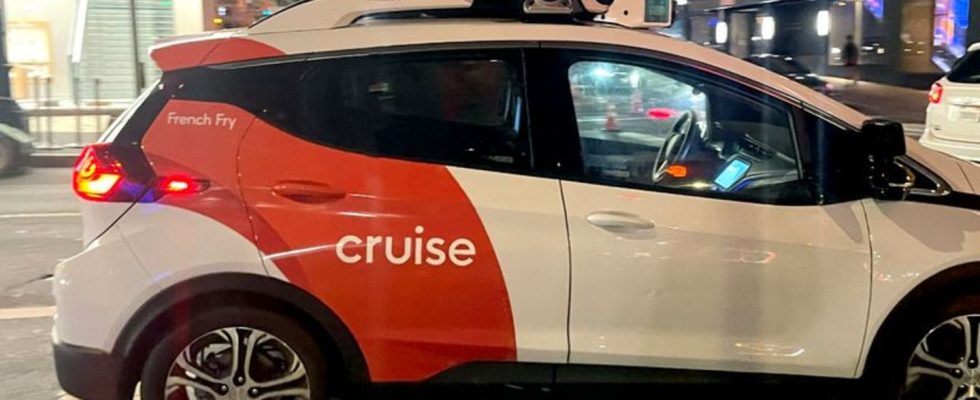Driverless taxi
Fewer cruise robotic taxis in San Francisco after accident
A driverless taxi from the robotaxi company Cruise in San Francisco. photo
© Marty Bicek/ZUMA Press Wire/dpa
Just over a week ago, two companies were allowed to offer 24-hour paid taxi services with driverless cars in San Francisco. A company must now limit its offer.
Just over a week ago, the California agency responsible for utility services allowed CPUC Cruise and Google’s sister company Waymo to offer 24-hour paid taxi services with driverless cars throughout the city of San Francisco.
After that, the General Motors subsidiary Cruise hit the headlines several times. During a music festival, several of their vehicles blocked a road because of the overloaded mobile network, a car got stuck in wet concrete during road construction work – and then the accident followed with the fire engine, which was on the way to an emergency. The California Transportation Authority asked Cruise on Friday, citing the incidents, to limit the number of cars for the time being.
Cruise: Fire truck recognized “almost immediately”.
Cruise said in a blog post that the company’s vehicle recognized the fire engine “almost immediately” when it came into view. At this intersection, approaching vehicles would only come into view very late because of a curve. The cruise car’s software also had problems predicting the path of the cart because it was driving in oncoming traffic. In the end, she was no longer able to prevent the collision. Before that, cruise cars encountered rescue vehicles more than 168,000 times this year alone.
The city and its transport companies have been fighting for months against a rapid expansion of robotaxi services. They argued that the technology was not yet reliable enough and pointed out, among other things, that the vehicles repeatedly blocked traffic due to technical problems and that ambulances were in the way.
Cruise and Waymo have been driving their robotic cars in San Francisco for years – first with security drivers, but now more and more often without a human behind the wheel. They want to switch to specially developed vehicles for the Robotaxi services that have neither steering wheels nor pedals.

